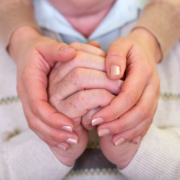How Nursing Homes Can Provide Better Care for Patients with Alzheimer’s Disease
The number of people suffering from Alzheimer’s disease is growing at an unprecedented rate. Almost two-thirds of all residents in nursing homes in America are diagnosed with some type of cognitive impairment including Alzheimer’s and these patients rely heavily on the quality of care given in these facilities to help them enjoy a good quality of life even as their disease progresses.
The importance of optimal care in Alzheimer’s patients
Unlike other forms of health care, caring for Alzheimer’s patients take on a more person-centered approach, which focuses on allowing the patient as much independence as possible while still providing him the level of care he needs depending on the stage of his disease.
Optimal care in nursing homes covers different domains of a patient’s life including his functional and social status, security, comfort, and emotional and physical health.
As the disease progresses, patients also experience a decrease in their quality of life, especially when they start to feel functional impairments and depression. But it is the job of professionals in nursing homes to make sure that optimal care is given to patients, no matter the stage of their disease.
The elements of optimal care in nursing homes
To achieve the goal of providing optimal care to Alzheimer’s patients, nursing homes must have these essential components:
Proper assessments
Both federal and state regulations require nursing homes to conduct proper assessments of all residents using the Minimum Data Set of the Centers for Medicare and Medicaid Services (CMS). Patients suffering from Alzheimer’s disease should also undergo more in-depth assessments to determine the progression of the disease and the proper care to be given to them.
Adequate staffing
Since individuals with Alzheimer’s disease need more care than other patients, nursing homes should be able to attend to the needs of their residents by making sure that they meet proper staffing requirements.
Staff should also be trained in caring for Alzheimer’s patients and they should follow rules in making sure that each resident is given adequate care not only by nurses but also by recreational therapists, social workers, and nursing assistants.
Care planning
Since caring for a patient with Alzheimer’s disease should take the person-centered approach, it’s very important to involve the patient, his family and the staff in creating an effective care plan tailored to his needs. The primary goal for care here is to give patients as much independence as possible while making sure that they have the assistance they require in doing certain activities.
Proper medical management
As Alzheimer’s disease progresses to its moderate and severe stages, patients will start to manifest more psychological and behavioral signs of dementia, which deserve attention from healthcare providers.
A nursing home should be able to deal with these problems as they arise, especially in managing the symptoms through both pharmacological and alternative methods.
Individuals suffering from Alzheimer’s disease deserve the best quality of life. Whether they live for four or twenty years, they should be able to enjoy their surroundings while making sure they are safe and well cared for by the competent staff in nursing homes.
Richmont Senior Living is proud to serve Ashland, NE and the surrounding cities: Memphis, Springfield, South Bend, Greenwood, Murdock, Waverly, Murdock, Ithaca, and Chalco




